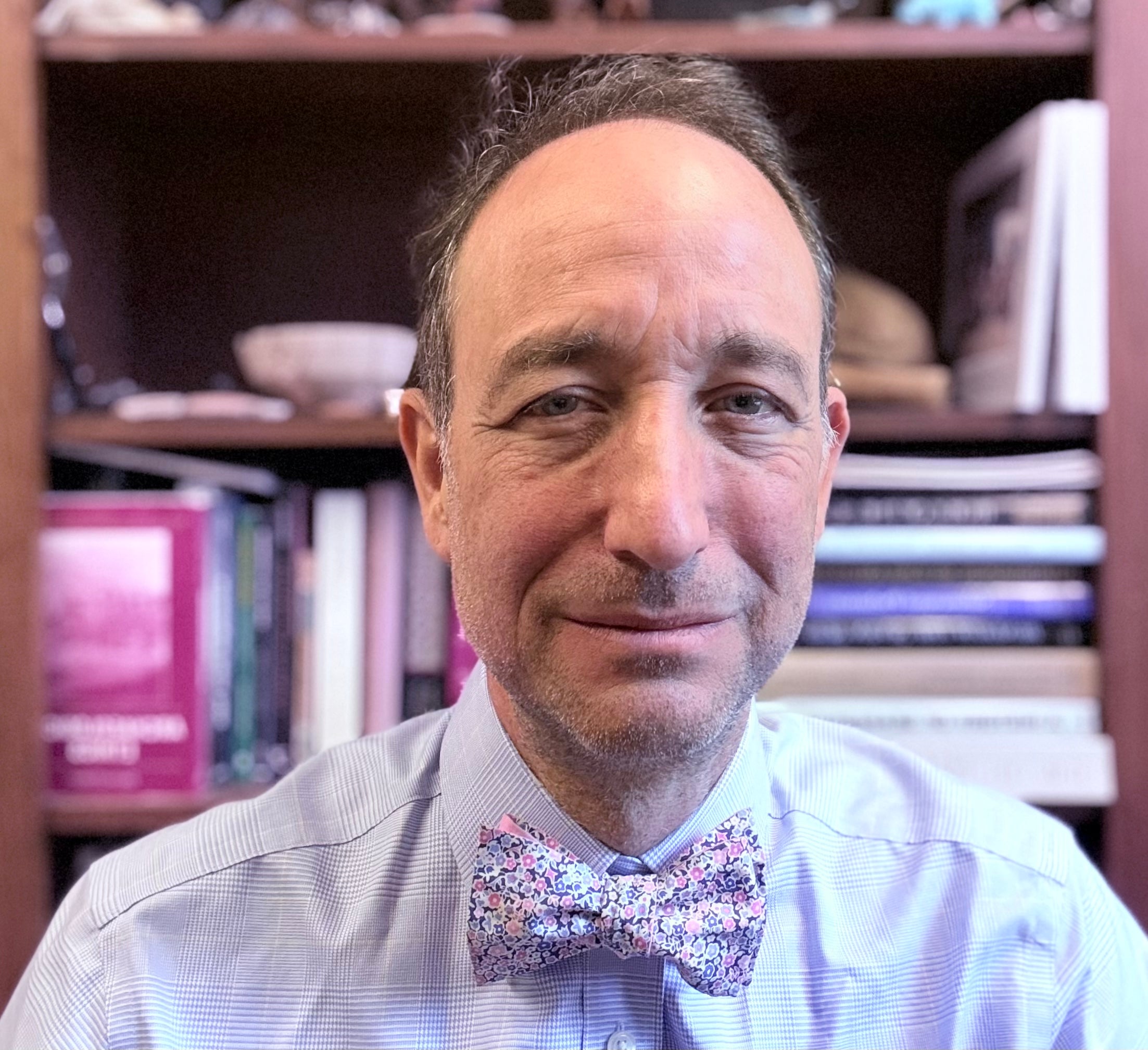- Professor, Advisor
- Philosophy: Swan 150
- Phone: 401.874.2812
- Email: krieger@uri.edu
- Office Location: Dept of Philosophy
Swan Hall
Kingston, RI 02881 - Website
- Google Scholar
- ResearchGate
Biography
As the Philosophy Department chair, philosopher of science and working archaeologist, Will Krieger’s teaching and research interests focus on the impact of philosophical decisions on scientific (and humanistic) practices. As such, whether his students are in a classroom or on an archaeological dig, Dr. Krieger works to connect their philosophical journeys to real world problems.
In recognition for his accomplishments in the classroom and in the field, Dr. Krieger was named a fellow of the John Hazen White Center for Ethics and Public Service (2008), was awarded the URI College of Arts & Sciences Teaching Award (2011), and was named a “Newsmaker” by the Providence Business News (2013).
In his role as a working scientist, Dr. Krieger currently works as an archaeologist in Field D at Tell es-Safi/Gath Excavations, and he has gotten his hands dirty and/or wet at a variety of archaeological sites throughout Israel, including Tel Miqne/Ekron, Tel Harassim, Tel el-Farah, South, the Northern Negev Survey Project, and the Israel Coast Exploration (ICE) project. In 2010 Dr. Krieger was among a group of international experts who created the “Penn-Brock Statement of Principles and Best Practices for Underwater Archaeology and the Stewardship of Underwater Cultural Heritage in the Mediterranean.”
Dr. Krieger has served on the boards of a variety of professional organizations devoted to Philosophy, Archaeology, and Religious Studies, including the Western Conference for the Study of Religion (WECSOR) and the International Society for the History of Philosophy of Science (HOPOS). At URI, Dr. Krieger has served on the Center for the Humanities Executive Committee, the Faculty Senate’s Executive Committee, and the Faculty Senate (as a member and parliamentarian) and was awarded for his senate service with the Fritz Wenisch award in 2023. His trainings include completing a MicroCredential in Social Justice and Inclusion, becoming an ATL Faculty Fellow, and a Master Advisor.
Dr Krieger has done interviews and blogs on a variety of topics connecting his academic work with our public lives, including topics on Experiential Philosophy of Science, on the Archaeology of Israel, and on philosophical and technological issues surrounding Medical Apps, and has been invited to give talks to corporations on workplace DEI, focusing on Religion and Culture.
In his off hours (or minutes), Dr. Krieger loves riding his motorcycle, taking photographs of his land and underwater travels, playing the cello, and serving as Patrol Director and Instructor Trainer for the National Ski Patrol.
Research
Philosophy of Science and Technology, Science and Values, Philosophy of Religion, and Archaeological Theory
Interested in trying your hand at an archaeology and getting college credit? Contact Professor Krieger to join an archaeological field school in Israel.
Interested in exploring the connections between Hunger and Food Justice and Experiential Philosophy? Contact Professor Krieger to join his PHL 477 Food-Philosophy Course (in partnership with the URI Hunger Center)
Education
- Ph.D. Philosophy, Claremont Graduate University, 2003
- B.S. Biology, Columbia University, 1991
- B.A. Honors Jewish Philosophy, Jewish Theological Seminary of America, 1991
Selected Publications
“Public Philosophy Meets Cognitive Archaeology.” In Philosophy, Cognition, and Archaeology. Janko Nešić and Vanja Subotić (eds.) University of Belgrade Press, p 53-68. 2024. ISBN 978-86-6427-321-3.
.P Pandit and W Krieger. “A Comparative Study on Emotion from Indian and Western Philosophy.” Comparative Philosophy. 2024.
WH Krieger and B Cotton. “Medical Professionals and Medical Apps: Why Oversight Must Come from Within.” Smart Homecare Technology and TeleHealth. 2021.
““I Should Speedily Escape into the Land of the Philistines” (1 Sam 27:1): Theoretical and Methodical Change in the Archaeology of Philistia.” To Explore the Land of Canaan: Studies in Biblical Archaeology in Honor of Jeffrey R Chadwick. Maeir and Pierce, eds. DeGruyter. 2021
“Asking for Directions on Pesach: Should Archaeological Discoveries Change our Views of the Exodus from Egypt?” In Zev Garber (ed.) Annotated Passover Haggadah. Denver: Global Center for Religious Research Press. 2021.
“Processual Archaeology.” Oxford Bibliographies. Oxford University Press. 2021.
“Philosophy of Science.” SAS Encyclopedia of Archaeological Sciences. Wiley. 2018. https://onlinelibrary.wiley.com/doi/10.1002/9781119188230.saseas0450
“When are medical apps medical? Off-label use and the Food and Drug Administration.”
“Philosophy, Economics, and the Supply Side of the Archaeological Black Market.” in Lee Trepanier (ed.) The Free Market and the Human Condition: Essays on Economics and Culture. Lexington Books. 2014.
“Marketing Archaeology.” Ethical Theory and Moral Practice. Springer Press. 2014. Online at http://link.springer.com/article/10.1007/s10677-014-9497-9. Author’s Pre-Publication Manuscript available here.
“Medical Apps: public and academic perspectives.” Perspectives in Biology and Medicine. The Johns Hopkins University Press. 56: 2 (2013), p 259-273. Author’s Pre-Publication Manuscript available here.
“Theory, Locality, and Methodology in Archaeology: Just Add Water?” HOPOS: the Journal of the International Society for the History of Philosophy of Science. University of Chicago Press. 2:2 (2012), p 243-257. Author’s Pre-Publication Manuscript available here.
SCIENCE AT THE FRONTIERS: Perspectives on the History and Philosophy of Science. (ed.) Lexington Books. 2011. *CHOICE Outstanding Academic Title 2012
CAN THERE BE A PHILOSOPHY OF ARCHAEOLOGY? Processual Archaeology and the Philosophy of Science. Lexington Books. 2006.
Blog Posts
“An APP(le) a Day: Can Smartphones Provide Smart Medical Advice.” The Prindle Post 2016

